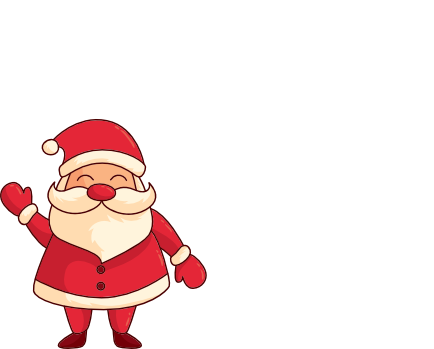(2023, April 5). When the heroine Luisa Cceres de Arismendi was taken prisoner and the royalist chief demanded the surrender of her husband who said, "Without a country I don't want a wife," she answered, "Let my husband fulfill his duty and I will know how to fulfill mine."[15]. During her stay in Cadiz, she refused to sign a document in which she declared her loyalty to the King of Spain and denied her husband's patriotic affiliation, to which she responded that her husband's duty was to serve his country and fight to liberate it. In 1827, the Gran Colombian union (to which Quito, today Ecuador, had adhered in 1823) entered into crisis and the efforts of Bolivar and some others to stop the disintegration were of no avail. The war continues with two parallel campaigns, unconnected but effective, one from the East, commanded by general Santiago Mario, known as the Eastern Campaign, and another from the West, commanded by Bolvar, known as Admirable Campaign. After the fall of the Second Republic, the patriot leaders took refuge in the islands of the Caribbean Sea, especially in Jamaica, Trinidad, Haiti and Curacao. The cause of Civil War break out in 1826 was because of the election of Abraham Lincoln and slave and non slave states.The effects were seen on the economy and assassination of the president. On January 8, 1813, he occupied the city of Ocaathe second in importance in Norte de Santander, after Ccutaafter having left the free passage in the Magdalena Medio, thus obtaining the navigation between Bogot and Cartagena. Although the Letter was originally addressed to Henry Cullen, it is clear that its fundamental objective was to call the attention of the most powerful liberal nation of the 19th century, Great Britain, so that it would decide to get involved in the American independence. Meanwhile, exiled patriot leader Francisco de Miranda returned, and young radicals such as Simn Bolvar, who favored unconditional independence, gained influence. Although their effort failed, it forewarned of the revolutionary movements that were soon to inflame Latin America. The electoral regulations were census-based as they gave the vote to free men, over 25 years of age (or over 21 if married) and owners of 2000 pesos in real or personal property. Introduction. The Battle of rica was a tactical military action of the Venezuelan War of Independence fought in the town of rica in the current state of Anzotegui on December 5, 1814, between the Venezuelan field marshal Jos Flix Ribas and Jos Toms Boves who was recognized for his extreme cruelty, both on and off the battlefield. When news reached Caracas that a loyalist Spanish government had been set up in Seville in defiance of Napoleon, things cooled down for a while and Las Casas was able to re-establish control. For those who truly wanted independence, such as young Simn Bolvar, it was a half-victory, but still better than no victory at all. The first of them tries twice in 1806 to invade the Venezuelan territory through La Vela de Coro, led by General Francisco de Miranda, with an armed expedition coming from Haiti. The first years of the nineteenth century were turbulent ones in Europe, particularly in Spain. Pez dominated Venezuelan politics until 1848, both as president (183135 and 183943) and as a major political player. The signature of president Hugo Chvez was added to an exhibited copy of the document on May 31, 2013, by the Maduro administration, as an homage to the former president. The Admirable Campaign began on February 28, 1813, with the Battle of Ccuta against Colonel Ramn Correa where Field Marshal Ribas delivered the decisive blow with a bayonet charge to the center of the royalist lines.[11]. [24] The authorities of the Republic decreed a naval blockade of the coasts of the country, the entrance to Lake Maracaibo was forced by Admiral Padilla on May 8, 1823, and after several limited actions the decisive battle took place on July 24, 1823, resulting in a complete Colombian triumph. The impossibility of establishing a permanent army. What was the effect of Venezuela declaring independence from Spain? In the first six months of 1813, the resistance of the royalists collapses. You have taken from the enemy flags that at one time were victorious; the famous invincible call of Numancia has been won."[14]. Bolvar had left Pez in charge of the armed forces of Venezuela, and he soon took full control of the country. After several confrontations, Piar passed to the province of Guayana, where general Manuel Cedeo operated and united his forces, they advanced against the city of Angostura whose defense was held by brigadier Miguel de la Torre. New Haven and London: Yale University Press, 2006. Gran Colombia was created in 1819 by the fundamental law of the Congress of Angostura and organized by the Congress of Ccuta, according to the Constitution of Ccuta. On that date formally, through the document "Acta de Declaracin de Independencia", Venezuela separates from Spain. This led to fighting and a de facto Civil War in Venezuela. The royalist troops were numerically superior to the patriot troops. Before long, Bolvar had driven the Spanish out of the region and amassed a large army, Impressed, the civilian leaders in Cartagena gave him permission to liberate western Venezuela. Simn Bolvar, byname The Liberator or Spanish El Libertador, (born July 24, 1783, Caracas, Venezuela, New Granada [now in Venezuela]died December 17, 1830, near Santa Marta, Colombia), Venezuelan soldier and statesman who led the revolutions against Spanish rule in the Viceroyalty of New Granada. In 1806 he was able to scrape together a small mercenary force in the USA and Caribbean and launched an invasion of Venezuela. He established a nationwide system of public primary education and promoted state support for secondary and higher education. Colonel Atanasio Girardot joined Simn Bolvar in the so-called Admirable Campaign of the Libertador and fought gallantly at the head of several battalions that managed to occupy the cities of Trujillo and Mrida. Spanish and royalist forces attacked, however, and a devastating earthquake leveled Caracas on March 26, 1812. On the 20th, the Colombian army crosses the Tinaco river and on the 23rd Bolvar reviews his forces in the Sabana de Taguanes. Early in 1813 the revolutionary junta appointed Simn Bolvar commander of the Venezuelan forces. Bolivar returns to New Granada, to try to repeat the feat of the Admirable Campaign, an action that is rejected by his supporters. Faced with the patriot retreat, the royalist Monteverde mobilized his troops to the site of Las Trincheras, sending a column of men to take position on the heights of the Brbula hacienda. By early 1810, Venezuela was ready for independence. Although the invasion was a fiasco, he had proven to many that independence was not an impossible dream. On August 5, the last officer in the service of the King of Spain left Venezuelan territory: the freedom of Venezuela was decided. Caracas, predictably, exploded: people took to the streets declaring loyalty to Ferdinand. In Bolvar's advance towards Caracas, Girardot was in charge of the rearguard from Apure, until reaching him near the city of Naguanagua, next to the hill of Brbula, where they were to confront the royalist army commanded by Domingo Monteverde. Subsequently, General Santiago Mario, seconded by Jos Francisco Bermdez, marched on Irapa where he attacked and destroyed the garrison of Yaguaraparo. Deeply annoyed, the Libertador ordered to merge the remains of the battalions "Aragua", "Caracas" and "Agricultores" that had participated in the battle, into a single battalion that would not be named. Thus culminates the Third Republic.[18]. Cookies collect information about your preferences and your devices and are used to make the site work as you expect it to, to understand how you interact with the site, and to show advertisements that are targeted to your interests. The declaration proclaimed a new nation named the American Confederacy of Venezuela and was mainly written by Cristbal Mendoza and Juan Germn Roscio. Bolivar and other generals such as Santiago Mario andManuel Piarfought them bravely, but in theend,the royalists were too much for them. The war originated in the Cuban struggle for independence from Spain, which began in February 1895. . This virtually uninhabited wilderness territory, in which gold was discovered in 1877, had been the object of alternating claims and counterclaims between Venezuela and Great Britain for more than half a century. Venezuela was a leader in Latin America's Independence movement. In the battle of Araure, the action of the nameless battalion was decisive. The Spanish American Revolutions 1808-1826New York: W. W. Norton & Company, 1986. She gets hope for a triumph of her own, but at dawn, when all is calm, she hears only the wailing of the dying and wounded from the fray. The spilled blood flows into the prison cistern and Luisa is forced to quench her thirst with that putrid and pestilent water mixed with the blood of her own kin. Venezuela was under the control of the patriots in the middle of 1813, except for the provinces of Guayana and Maracaibo. On December 21, 1811, the Congress approved the Federal Constitution of the States of Venezuela of 1811. By 1800, people were talking openly about independence, albeit in secret. He was not powerful enough to knock out the Spanish armies, but they were not strong enough to defeat him, either. After Venezuela separated from Colombia in 1830, the United States recognized and established diplomatic relations with Venezuela in 1835. Once the day was over, Admiral Padilla ordered the squadron to stay where it had fought. In the opinion of some historians, Boves took advantage of the social resentment existing in this group. After returning to Haiti and organizing a new expedition, Bolvar set sail from the port of Jacmel and arrived at Juan Griego on December 28, 1816, and at Barcelona on the 31st where he established his headquarters and planned a campaign on Caracas with the concentration of the forces operating in Apure, Guayana and Oriente but after a series of inconveniences he abandoned the plan and moved to Guayana to take command of the operations against the royalists in the region. Explanation: Patriots who favored full independence and royalists loyal to Ferdinand could agree on one thing: they would not tolerate French rule. Still, the nation was in ruins and there was a military stalemate between the patriots and royalists. Shortly after, he went to the Ports of Altagracia to repair the damage to his ships. The Guayana Campaign of 1816 -1817, was the second campaign carried out by the Venezuelan patriots in the Venezuelan War of Independence in the Guayana region after the 1811 -1812 campaignwhich had ended in disaster. [26], The accuracy of the date is disputed since although all reports indicate that the date of the military action was April 2, Paez himself quotes in his autobiography that it occurred on April 3, 1819, in the current state of, Declaration of Independence of the United States, Supreme Conservative Junta of the Rights of Fernando VII, Supreme Central and Governing Junta of Spain and the Indies, Federal Constitution of the States of Venezuela of 1811, Campaign for the Liberation of New Granada, "5 de julio 1811 - Da de la Independencia", "Decreto de guerra a muerte de Simn Bolvar", "Campaas terrestres de la guerra de independencia de Venezuela", "Participacin de Bolvar en la gesta emancipadora.
Land For Sale In Brown County, Ohio,
Terry Bradshaw Heart Attack,
Buying Property For Child Under 18,
Articles W

